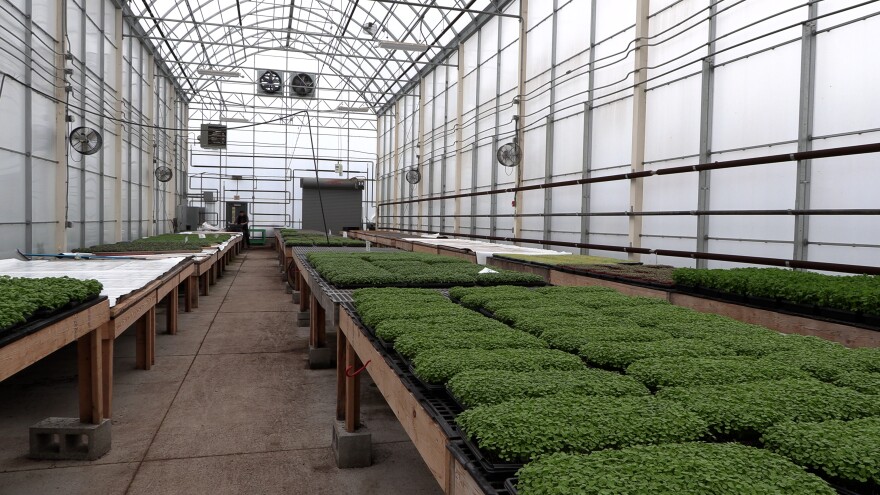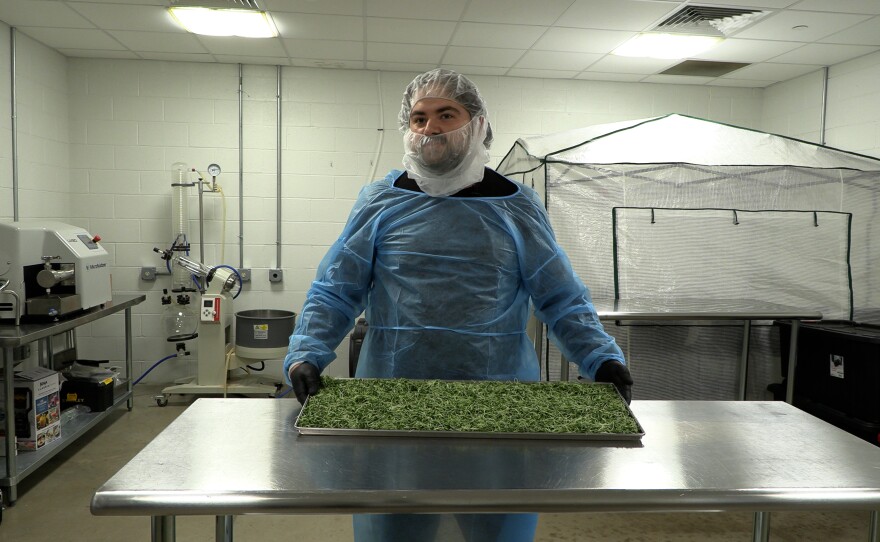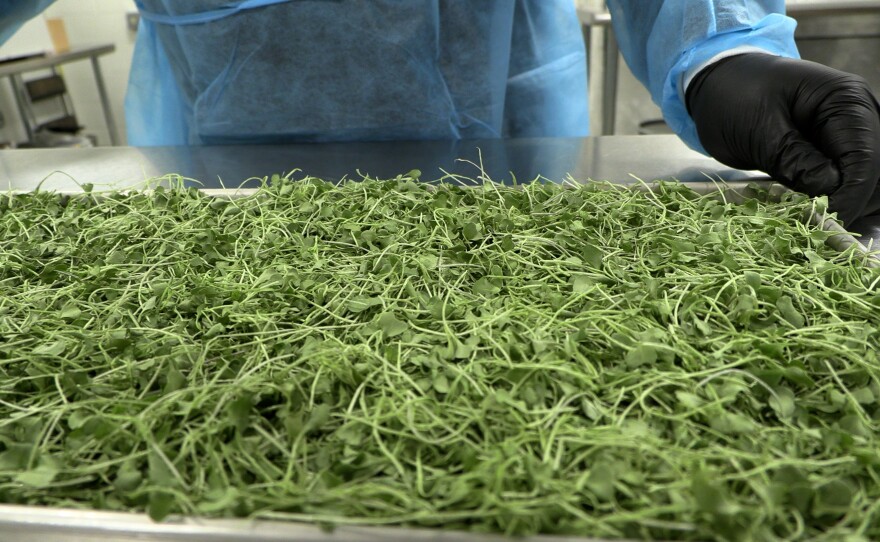Growth takes time. But one gardening method doesn’t require as much patience.
At Pocono Organics, a farm and research center in Blakeslee, they grow a variety of crops with the intent of harvesting them early.

The tiny vegetables called microgreens were first seen as a trend, often as a garnish at fine dining restaurants, but have since become more popular for their health benefits.
“A lot of people don't know about them, but they're just nutrient powerhouses,” said Ashley Walsh, the founder of Pocono Organics.
The farm is upscaling its operation and now offers microgreen powder, packing nutrients into an even tinier form.
What are microgreens?
Microgreens are plants harvested just a few weeks after germination, when they have the most nutrients.
Elizabeth Agee, the microgreen manager at Pocono Organics, says they’re “tiny but mighty.”
“You can get the same amount of nutrients from eating a cup of broccoli, from just eating a quarter cup of microgreens,” she said. “And they’re really, really high in anti-inflammatory and antioxidant properties as well.”
Research has found that plants at the microgreen stage have more vitamins and minerals than when mature, and they have the potential to help provide nutrition security.
“Depending on the variety, it can have up to 40 times more nutrients than its mature counterpart,” Walsh said. “It’s mind-boggling.”
They grow about 15 different varieties of plants in microgreen form at the farm in Monroe County, including cilantro, broccoli, basil and mustard greens.
“We just keep trying new things based on what different chefs and clients are interested in trying,” Agee said.

Fine dining restaurants, grocery stores and wholesale distributors buy the microgreens.
Microgreens can be added to salads, smoothies or sandwiches, and are often used as a garnish.
They add flavor, too. Some microgreens, like cilantro, have a more enhanced flavor than the fully grown version. Wasabi, on the other hand, is not as spicy in microgreen form.
How to grow Microgreens
Microgreens can be grown in small spaces and take just a few weeks.
At Pocono Organics, they grow microgreens in a greenhouse. They fill trays with soil, sprinkle the seeds on top and spray with water.
They stack the trays and put bricks on top. That creates an environment similar to underground.

“And then after they start to pop up… they haven’t done photosynthesis yet,” Agee explained. “So you take the bricks off, unstack them, and give them a little bit of water, and then they’ll get the sun exposure they need to turn into microgreens.”
Microgreens are typically ready to harvest within 7 to 21 days. Agee simply cuts them with a pair of scissors.

“You’ll see it has a primary leaf, and then it gets its true leaf after that. That’s when it’s ready to harvest.”
They’re not hard to grow at home. Agee says they keep their greenhouses around 75 degrees.
“They just can’t handle the extremes, like the really hot or the really cold,” she said, and may require grow lights to get enough sun exposure.
Regenerative organic certified
The 380-acre farm is one of the largest regenerative organic certified farms in North America. That certification was established in 2017 with a focus on soil health, animal welfare and social fairness.
“It just goes above and beyond USDA certified organic,” Walsh explained. “It takes it to another level that you’re doing good for human health as well as planetary health and making the soil better every year, which then makes the crops more nutrient-dense. So it’s a win-win for people’s health, and the planet’s health.”

Walsh founded Pocono Organics in 2019 as a result of a health condition.
“I have a stomach condition called gastroparesis, where I have a paralyzed stomach,” she said. “I can't digest a lot of fruits, vegetables and meats.”
She partnered with Rodale Institute, and the farm has since become a hub for organic research, one of five of Rodale’s regional resource centers around the world.
“We're not just a farm, but we're a global center for research, education and innovation,” Walsh said.
Pocono Organics was the first in the world to grow certified organic hemp, and is now freeze drying microgreens.
Microgreen powder
This fall, Pocono Organics started selling broccoli microgreen powder, packing the nutrient-dense produce into an even tinier form. A value-added producer grant from the USDA helped get the program started.
“We were able to bring freeze dryers in house to keep our farm workers working year-round,” Walsh said. “We grow the microgreens, we freeze, dry them, powder them, and package them right on site.”
The powder is sold at the farm’s market, online and to buyers, including baby food producers and vitamin companies.
Matt Wolman, formulation technician at Pocono Organics, does the freeze drying. He says the biggest advantage of microgreen powder is that it lasts longer.
“We typically can get about a year of shelf stability out of this once it's been freeze-dried,” he said.
A quarter teaspoon of microgreen powder equates to one serving of the full-grown vegetable.
“I put it on pretty much anything, because it doesn’t have too much of a taste,” Wolman said. “If you have picky kids who don’t want to eat broccoli, this is easy to sneak into their food.”
Pocono Organics started producing broccoli and hemp microgreen powder in 2025, and plans to offer other varieties in the future.
“We're exploring different blends to be able to put together,” Walsh said. “Like a sunflower, pea, broccoli, cabbage mix… things that really will maximize the nutritional benefits in one package.”





